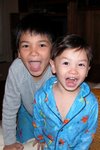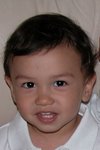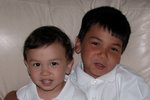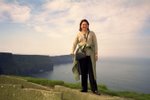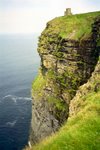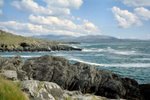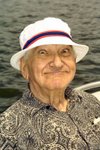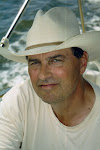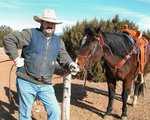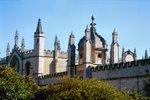
My bones have always managed to give me a bit of trouble. I was born with misaligned knees, so the cartilage in my knees wore away until I couldn’t walk more than twenty yards or so without having to sit down. I found it impossible to pick up my grandchildren and could only ascend stairs with my hands on the risers above me. Finally, after using and discarding every arthritis remedy available – glucosomine and chondriton, copper bracelets, and Montmorency cherries to name a few – knee replacement surgery became my only viable option.
In this type of surgery, the old, damaged knee is removed and replaced by a titanium and plastic or, sometimes, ceramic joint. The surgeon looks like he’s dressed for a hazardous materials cleanup. He’s completely covered with a bulky white suit and wearing a helmet and a visor. He saws through the femur and tibia in order to place the prosthetic device correctly. When my first knee was replaced, I had a spinal anesthetic, so I remained awake during the surgery. I have distinct memories of hearing the saw, the hammer, and the drill. I also remember how detached I felt from the whole proceeding. I was no longer in relationship with my body. While I listened dispassionately, sinews and flesh and skin were sewn back into place.
But, like the bones that had come back to bones in Ezekiel, these bones had no breath in them. They did not live. That resurrection would only be accomplished by brutal physical therapy, hard work on my part, and, of course, the grace of God.
Ezekiel’s vision of the dry bones showed the dispirited exiles from Judah that rebuilding their community was far from impossible. This group constituted a remnant which had survived through God’s enduring mercy. Through Ezekiel, Yahweh was calling them yet again to an exemplary life as his people. Their heritage had not ended in captivity; it had become a new story, built on the solid foundations of their old story and Yahweh’s special loving-kindness.
We are the Seabury remnant. For one hundred and fifty years, others have come before us. For about half that time, future priests have lived in this corner of Evanston, learning all they could about loving and serving the Lord. Now, only a few of us, a remnant, remain. The sinews, flesh, and skin on our bones have been ripped away.
We can choose to spend the rest of our time here buried, bones piled on bones in the ground. We can choose to acquiesce to our anger and grief -- to live in an atmosphere of victimization.
Or we can choose to do what the returning exiles, the Hebrew remnant, were asked to do. We can choose to envision a new community -- to prepare worship that springs from our spiritual needs, to push the boundaries of our classes to create new spaces for learning, and to be community in ways that may only last as long as we are here, but in ways that will feed us for the rest of our lives.
God calls us to a new place – a bleak, uncomfortable place, a valley of our dry bones. We must don those hazardous material suits. We must do the hard work: replace the sinews, the flesh, and the skin on those bones. We must wait for God’s breath to give us life again. Called or not called, God is here, and God has promised us nothing less than resurrection.



